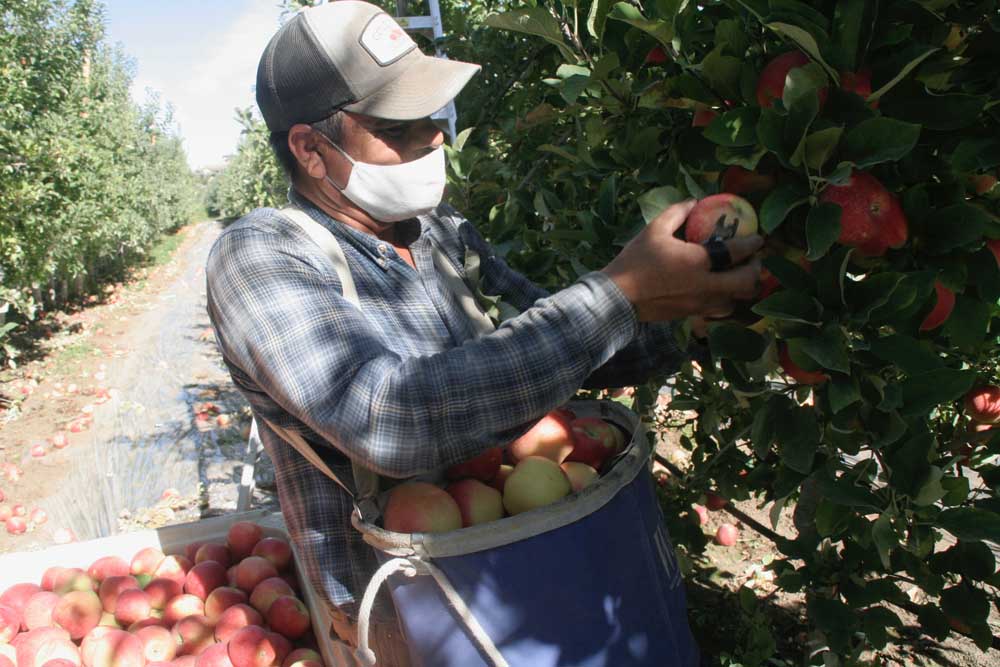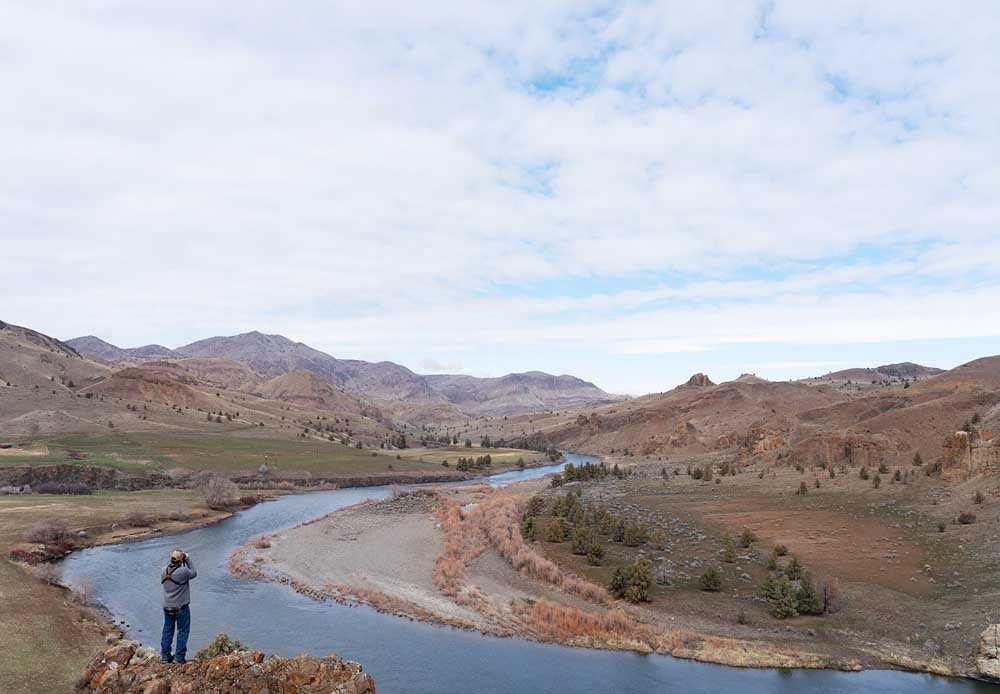Industry groups challenge Oregon’s heat and smoke workplace rules in lawsuit
Published 4:30 pm Thursday, June 23, 2022

- Federico Bernal Lopez picks Kanzi apples in Mt. View Orchard, East Wenatchee, Wash., on Oct. 9. The Washington Apple Commission says companies should focus sales this season on the U.S., Mexico and Canada.
A coalition of Oregon business and timber groups is challenging the state’s new workplace rules on heat and wildfire smoke.
Trending
On May 10, Oregon OSHA adopted permanent rules intended to protect workers, including farmworkers, from high heat and wildfire smoke. The rules instruct employers on how to provide workers with shade and water, breaks and other preventative measures.
Last week, industry groups challenged these rules, arguing that the guidelines are too vague.
“The provisions…are so vague that they do not provide employers, including plaintiffs’ members, with fair notice of what conduct is required or proscribed,” the suit alleges in court documents.
Trending
A lawsuit, filed June 15, asks the U.S. District Court for the District of Oregon Medford Division to issue a temporary restraining order preventing Oregon OSHA from enforcing the rules while the court considers whether to block their enforcement permanently.
The coalition that brought the suit includes Oregon Manufacturers and Commerce, Associated Oregon Loggers Inc. and Oregon Forest Industries Council.
Defendants are OSHA and the Oregon Department of Consumer and Business Services. The suit also named agency leaders, Oregon OSHA’s acting administrator Renee Stapleton and Oregon DCBS’s director Andrew Stolfi, as defendants.
Sara Duncan, spokeswoman for Oregon Forest Industries Council, said OFIC considers OSHA’s rules unreasonable.
“Given extraordinary events like the 2020 Labor Day wildfires and last summer’s heat dome, we agree with all Oregonians that the health and safety of employees must be prioritized, and employers should adapt as we acclimate to a changing climate,” said Duncan. “But these rules aren’t all reasonable — many go far beyond extreme events and are dramatically more strict than any other state.”
Duncan pointed out, for example, that the air quality index requirements under Oregon’s new rules are twice as stringent as California’s rules.
According to Oregon OSHA, the heat rules apply to outdoor and indoor work activities where there is no climate control when the heat index equals or exceeds 80 degrees Fahrenheit.
These requirements, Duncan of OFIC said, “will significantly restrict work in benign circumstances like a typical Oregon summer day.”
Industry groups are also concerned about smoke-related rules. In court documents, plaintiffs allege that the rules “do not distinguish between contributions to the Air Quality Index level from wildfire smoke in comparison to other pollutants” and don’t give employers a method by which to determine whether particulates from wildfire smoke are present at a work site.
Rex Storm, executive vice president of Associated Oregon Loggers Inc., another plaintiff, said he “concurs” with Oregon Forest Industries Council’s statements, though he did not elaborate.
Aaron Corvin, of Oregon OSHA, said OSHA’s staff “do no comment on pending litigation.”
PCUN, an Oregon-based farmworker union, expressed frustration that business groups filed the lawsuit.
“We’re frustrated to see corporate lobbyists and lawyers attempt to delay the recently adopted heat and smoke standards from going into effect, right as summer heats up,” said Reyna Lopez, PCUN’s executive director and president.
Oregon OSHA’s rules, she said, provide workers with “common-sense protections such as access to cool water, shaded rest areas and additional breaks in high-heat temperatures.”







